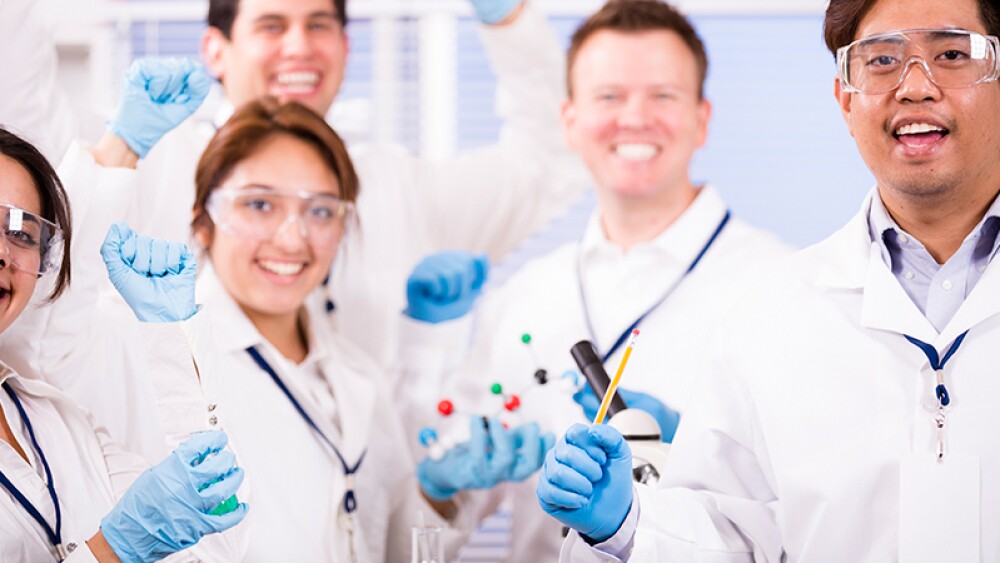August 19, 2016
By Mark Terry, BioSpace.com Breaking News Staff
Casebia Therapeutics, a joint venture between Germany’s Bayer and Cambridge, Massachusetts-based CRISPR Therapeutics, plans to open laboratory and office space in Cambridge.
Bayer AG (BAYN) and CRISPR Therapeutics originally announced the joint venture in December 2015. The plan is to discover, develop and commercialize new drugs for blood disorders, blindness, and congenital heart disease using CRISPR’s gene-editing technology, and Bayer’s protein engineering expertise and marketing know-how. The deal was formalized in the first quarter of this year, and Bayer invested $335 million in the venture.
“The JV and the Bayer investment are game-changing for our business,” said Rodger Novak, CRISPR’s chief executive officer and co-founder, in a statement in December. “We keep a 50 percent ownership in the high-risk, high-reward areas of blood disorders, blindness, and congenital heart diseases, but also retain full access to target delivery technologies and IP development by the JV, which we intend to fully leverage in support of CRISPR Therapeutics’ wholly owned core strategic disease areas.”
Casebia is leasing 33,000 square feet of space at 610 Main Street North in Cambridge, Mass., which is currently under construction. The building, which will be nine stories tall, is owned by the Massachusetts Institute of Technology (MIT). Casebia expects to host 80 employees there and use it as its primary headquarters. It expects to have 20 employees there by the end of the year.
At the moment, two Casebia teams of 15 to 20 people each, will conduct business and research in two research buildings owned by Bayer in Cologne, Germany and San Francisco’s Mission Bay.
“The question is how fast can we scale up,” Axel Bouchon, Casebia’s interim chief executive, told The Boston Globe. “Hiring in Cambridge is tough. However, it’s a huge opportunity. If you have an interesting technology and funding, you can tap a pool of scientific talent that is the best in the world.”
The advantage of the joint venture is that Casebia’s management can focus exclusively on its own programs. It also opens the possibility of bringing in additional investors or go public if either seems appropriate. The company has indicated that it hopes to bring three to four programs in hematology and ophthalmology to clinical trials in the next five years.
“This gives us the opportunity to extend our portfolio,” Novak told The Boston Globe. “We’re working on programs we otherwise wouldn’t have the capacity to work on. There will be a lot of cross-fertilization.”
CRISPR Therapeutics focuses on translating CRISPR-Cas9, genome-editing technology, into therapeutics for diseases. Cas9 is an enzyme that can be programmed with RNA to cut DNA at specific, targeted locations within the genome, which allows for easier, more specific gene editing.
CRISPR Therapeutics is not the only company to be working with CRISPR-Cas9. In fact, the technology itself has been tangled up in lawsuits over patents. Jennifer Doudna and Emmanuelle Charpentier, who co-founded CRISPR Therapeutics with Rodger Novak, published the first paper describing the technology. However, Feng Zhang, a researcher at the MIT-Harvard Broad Institute, filed a broad U.S. patent claim on the technology.
The technology was first described in the journal Science in 2012 by Doudna, then a biologist at the University of California, and Charpentier, then at the Max F Perutz Laboratories at the University of Vienna in Austria. However, Zhang, at the Broad Institute, first won a patent for the technology after submitting laboratory notes to prove he was the first inventor.
The patent battles appear to be continuing, and are expected to draw out for quite some time.
Other companies developing CRISPR include Editas Medicine and Intellia Therapeutics, both headquartered in Cambridge, Mass. To date, no drugs or therapies have been created using CRISPR, although drug companies believe it has the potential to revolutionize the industry. Doudna originally founded a company, Caribou Biosciences, but later cofounded Editas with Zhang and George Church, a professor at Harvard and MIT.





